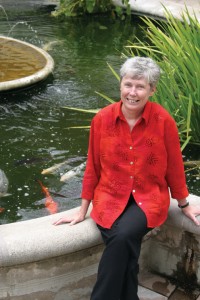Abstract
Perhaps the term computer ‘memory’ has led people to believe that human memory has to be perfect and infallible. Many people worry when they realise they forget and some turn to recording and collecting as much as they can, e.g. photos or videos through life logging. Some people assume that by collecting they can avoid forgetting or at least have access to the information anytime later. And that is where they might be wrong. First of all, recordings are not equivalent to memories, and memories ‘can not be stored’. Secondly it has already been shown that people collect too much and organize too little for them to be able to find information later [1]. Thirdly, human memory works best when we forget… a lot.
What I want to talk about is my vision [2] that we can use design research to support human remembering by supporting our memory’s functions [3], which include a directive function (using the past to guide present and future thoughts and behaviours, e.g. solving problems), a self-representative function (creating a sense of self over time) and a social function (developing and nurturing relationships, through sharing of personal experiences). It is important to realise that in order to support these functions there is no need to improve our remembering capabilities, however it could benefit from the right type of support. Since remembering is a reconstructive process, individual memories are subject to change, continuously, and what someone experiences as a memory does not have to be the same as what happened or what other people remember from the experience.
Bits of information from the original experience can be used to stimulate and facilitate the reconstruction process. These so-called memory cues [4], which can be anything: from a photo, a song to a person or a location, are at the core of our research. We use a people-centred approach to study memory cues in everyday life, which informs the design of interactive systems that present these memory cues. Since these cues are often digital, while people prefer material objects [e.g. 5], we combine material and digital in our studies and designs.
- Whittaker, S., Bergman, O., and Clough, P. Easy on that trigger dad: a study of long term family photo retrieval. Personal and Ubiquitous Computing 14,1 (2010), 31-43.
- Hoven, E. van den. A future-proof past: Designing for remembering experiences. Memory Studies 7, 3 (2014), 373-387.
- Bluck, S., Alea, N., Habermas, T., and Rubin, D. C. A tale of three functions: The self–reported uses of autobiographical memory. Social Cognition 23, 1 (2005), 91-117.
- Hoven, E. van den, and Eggen, B. The Cue is Key: Design for Real-Life Remembering. Zeitschrift für Psychologie 222, 2 (2014), 110-117.
- Golsteijn, C., Hoven, E. van den, Frohlich, D., and Sellen, A. Towards a More Cherishable Digital Object. In Proc. DIS 2012, ACM Press (2012), 655-664.
Bio
Professor Dr Elise van den Hoven MTD is full Professor in the School of Software, Faculty of Engineering and Information Technology, University of Technology Sydney (UTS) and part-time Associate Professor in the Department of Industrial Design, Eindhoven University of Technology (TU/e). She has two honorary appointments: Honorary Senior Research Fellow in Duncan of Jordanstone College of Art and Design, University of Dundee and Associate Investigator with the Australian Research Council’s Centre of Excellence in Cognition and its Disorders.
Her research interests span different disciplines, including human-computer interaction, design and psychology, including people-centred design, designing interactive systems, physical interaction and supporting human remembering.
Professor Van den Hoven leads the international research programme Materialising Memories, a collaboration between UTS, TU/e and the University of Dundee, which uses a design research approach to study people in their everyday remembering activities in order to come up with ways to support them.
www.elisevandenhoven.com
www.materialisingmemories.com
Event details
- When: 20th April 2016 14:00 - 15:00
- Where: Cole 1.33a
- Series: School Seminar Series
- Format: Seminar


![twoculturesadvert-2[1]](http://blogs.cs.st-andrews.ac.uk/csblog/files/2016/05/twoculturesadvert-21-212x300.png)
 Dr Keith Cheverst is a Reader in HCI at Lancaster University where he obtained his PhD in 1999. Keith has also held the position of visiting scientist at Newcastle University’s Culture Lab, at Microsoft Research, Cambridge (working with the Socio-Digital systems group), and at the University of Melbourne (Department of Computing and Information Systems).
Dr Keith Cheverst is a Reader in HCI at Lancaster University where he obtained his PhD in 1999. Keith has also held the position of visiting scientist at Newcastle University’s Culture Lab, at Microsoft Research, Cambridge (working with the Socio-Digital systems group), and at the University of Melbourne (Department of Computing and Information Systems). 